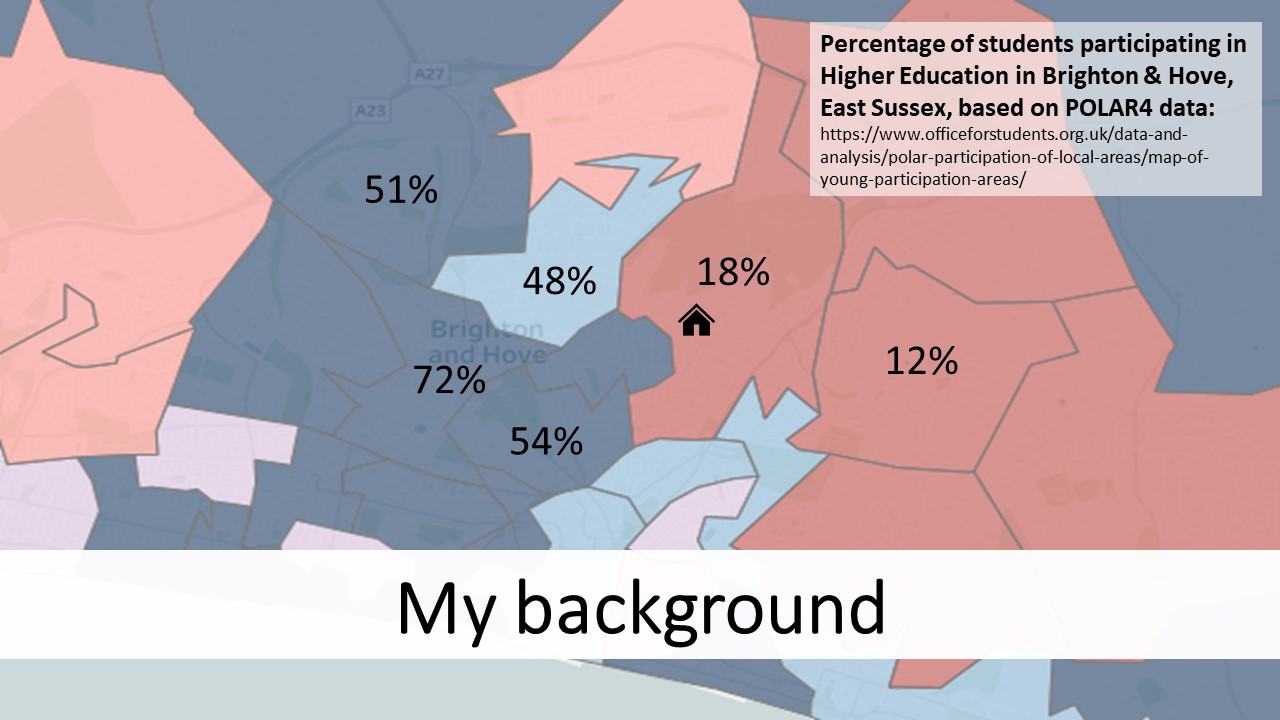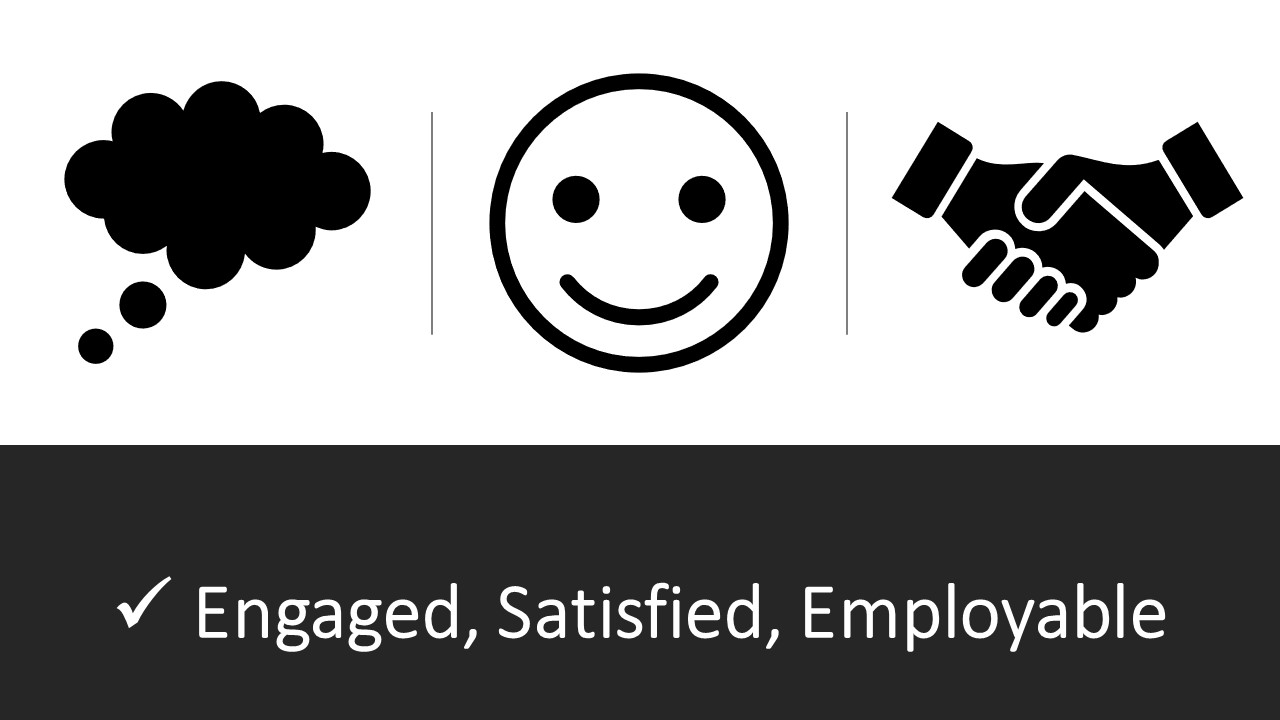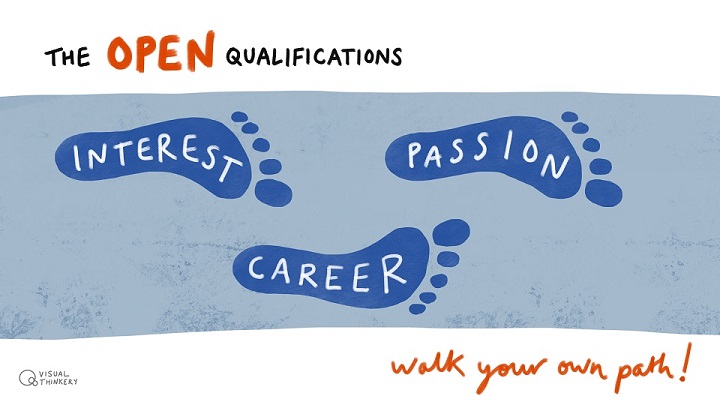Sarah Andrews is a student on the BA/BSc (Hons) Open degree focusing on mathematics and education related modules . She currently works as a Project Coordinator at the University of Brighton and her interests lie in Widening Participation and Outreach. Sarah was part of the Open Programme’s Student Shadowing Scheme after a successful submission detailing her interest in collaborating with Rehana Awan (Student Communications and Engagement Manager) to co-deliver a workshop at the Interdisciplinary Learning and Teaching Conference at Keele University in April 2019.
I am what is known today as a ‘First in Family’ or ‘low income background’ student, who grew up in an area with low progression to Higher Education. Back in 2002 (with little guidance as to ‘why’; only that I ‘should’) I applied to university through Clearing and was offered a place studying History of Art at the University of Sussex. I had little guidance or aspiration about careers, and like many selected the subject based on what I had most enjoyed at college. As a fairly academically able student, I had enjoyed and engaged with most of my subjects through my time at school, but there was no one clear pathway ahead of me, and after about a year a combination of dwindling interest in my modules, mounting debt and lack of vision about where my degree might take me led me to drop out. It wasn’t that I wasn’t academically capable, but that I couldn’t engage with the content, and, rather crucially, couldn’t picture myself as someone working in the few careers I’d heard it might lead to.
Over the next ten years or so I worked in a variety of unskilled roles, eventually working for North Lincolnshire Council’s education team, and then STEM Sussex at the University of Brighton, who run several different outreach projects to engage young people with Science, Technology, Engineering and Mathematics. It was at STEM Sussex that I started working on a number of projects with students less likely to progress to higher education and skilled careers, and discovered that this was something that really gave me purpose and meaning; despite (or perhaps, because) of the ‘glass ceiling’ I was starting to encounter due to my lack of degree level qualification. Around the same time, my line manager asked me, fatefully, ‘have you ever thought about doing a degree?’.
I began to investigate the options open to me, but going to a ‘brick’ university didn’t seem quite right. I couldn’t find just the right course, and I didn’t want to be tied down to attending lectures on particular days when my employment could potentially change. Thankfully I stumbled across an advert for the Open University and had a ‘lightbulb moment’ in realising I could get a student loan and study in my own time, and began to explore the course options open to me. Initially I knew I wanted to do something around young people, but wasn’t quite sure what, and none of the named degree options seemed quite right to me; the focus was either on teaching, social care or early years, none of which fit with my experience of the diverse roles available in extra-curricular and support services for education and schools. Luckily for me, the Open University also offer their Open Degree, and it’s this that I started to explore in greater depth.
The Open Degree is a named degree in its own right; it is well established[1] and carefully structured[2]. I was reassured and encouraged by the course outcomes which focus on development of a qualification that suits the student’s personal and professional needs and aspirations, and realised that with careful thought I could come up with a degree pathway that would be both personally engaging and relevant, and started to build my own bespoke course.
Throughout my life, I have been described by teachers and managers as organised and conscientious, so it’s no surprise that I approached the planning of my degree in a methodical way; there is nothing accidental or coincidental about my plan. I considered several factors including my goals in studying, the skills needed for potential future jobs (none of which included a specific named degree), my personal strengths, and of course my interests. Starting with four main subject areas (education, science, social science and statistics) I looked at all the modules that interested me and seemed relevant and pulled together several possible pathways in each; then over the course of a couple of weeks gradually whittled it down to a pathway that I could see myself completing. This turned out to be the social and policy aspects of education and youth, combined with statistics, which is highly relevant to work in the higher education sector and a transferable skill which will add a great deal to my employability[3].
I’m now half way through my degree, and it has flown past! I have completed modules which have been varied, fascinating and challenging in equal measure. My learning has directly linked to my career path; supporting a secondment within the Widening Participation team at the University of Brighton. I am now working part time in the two teams, on projects which are meaningful and rewarding to me and directly relevant to my studies, for example in development of additional support for less confident students participating in a social mobility driven STEM summer placement programme, and a transitional summer school for mature students starting at the University; both of which are driven by data and evaluation.
 Looking forward to the future, I am looking forward to completing challenging, but rewarding modules in statistics, before progressing to my final module, Issues in research with children and young people. I intend to graduate with a 2:1 or above in a degree that is both highly specialised to my current career path and highly flexible to suit many other areas (should I need to change in the future), having developed both in-depth academic knowledge in my chosen area and core aptitudes valued by employers[4]. As with many OU students, the study bug has well and truly bitten; I’m already researching Masters courses I might be able to progress to.
Looking forward to the future, I am looking forward to completing challenging, but rewarding modules in statistics, before progressing to my final module, Issues in research with children and young people. I intend to graduate with a 2:1 or above in a degree that is both highly specialised to my current career path and highly flexible to suit many other areas (should I need to change in the future), having developed both in-depth academic knowledge in my chosen area and core aptitudes valued by employers[4]. As with many OU students, the study bug has well and truly bitten; I’m already researching Masters courses I might be able to progress to.
In summary; the Open Degree programme at the Open University has enabled me to build a bespoke degree that interests me and makes sense to my career path, as well as being highly transferable. This has encouraged my full engagement with the course, my satisfaction with the University and degree programme, and my employability once I graduate.

Footnotes:
[1] The “Open degree” was the first qualification to be offered by the OU when the University was first established and is the most commonly awarded undergraduate degree in the OU, with 18.5% of undergraduate honours degrees awarded in 2016/17 and nearly a quarter of a million alumni having graduated with an Open degree since it was first introduced. It is a mature and popular degree that is recognised to be of value by both students and employers.
[2] Students are asked to study one of a number of specified key introductory modules designed to develop base subject knowledge and study skills, and 120 credits in each of stages 1, 2 and 3. A number of suggested pathways are given, or support is available to structure a degree according to your interests. While the Open University does not have initial entry requirements, each module gives clear guidance in regards to entry or prior knowledge needed for successful study.
[3] The UK Employer Skills Survey 2017 highlighted complex analytical skills, including problem solving and numerical/statistical analysis, as one of the most prevalent skills shortages in the labour market. See Department for Education (2018) Employer Skills Survey 2017 [online]. (Accessed 22 March 2019).
[4] The Pearson and CBI Skills Survey 2015 shows that having the right attitudes and aptitudes is by far the most important consideration when businesses are recruiting graduates – nearly nine in ten employers (89%) value these above other factors such as degree subject (62%).

